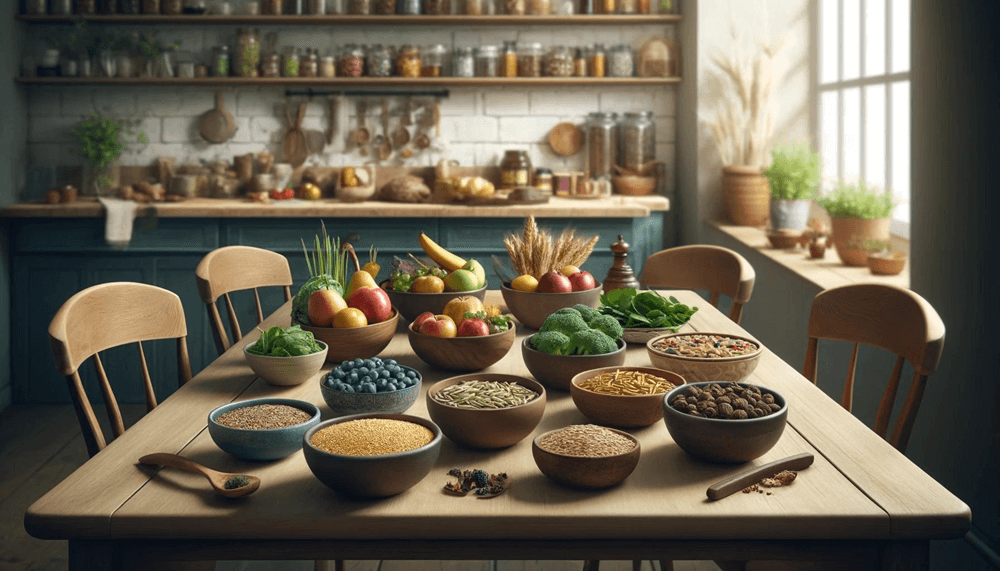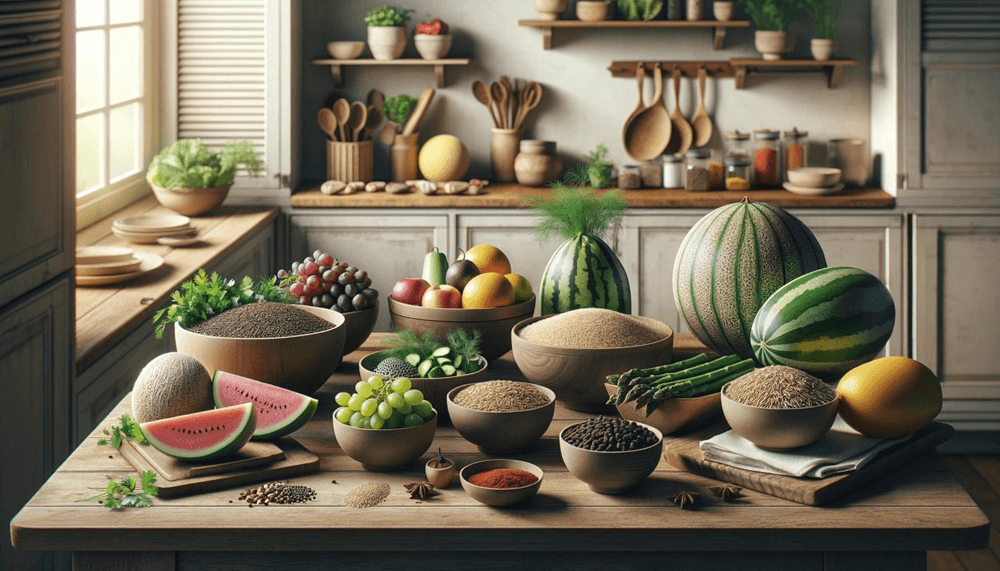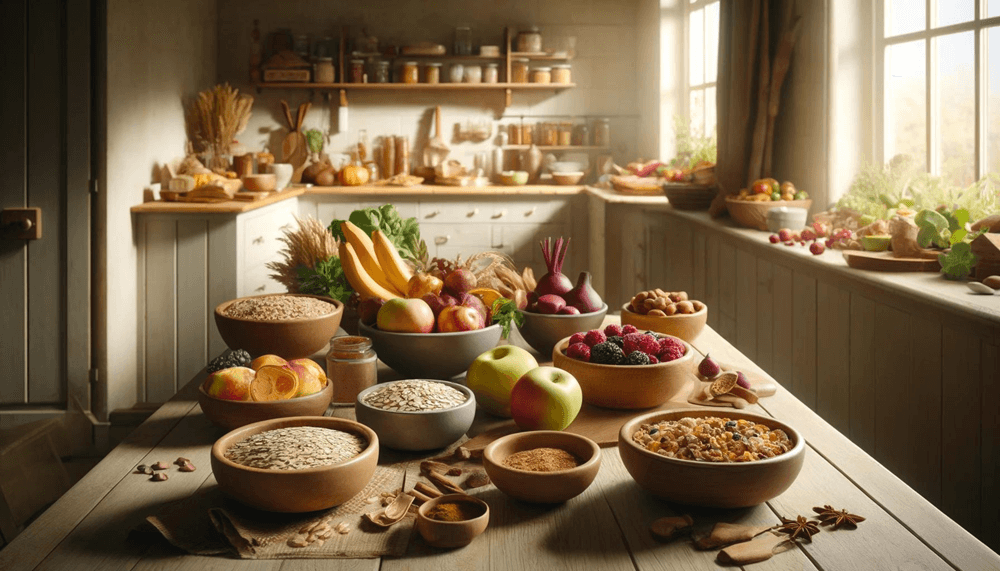Understanding the Doshas
In Ayurveda, doshas are the fundamental energies that govern our physical and mental processes. Each person has a unique combination of these doshas:
- Vata (air and space): Governs movement and creativity.
- Pitta (fire and water): Governs digestion and transformation.
- Kapha (earth and water): Governs structure and stability.
Balancing these doshas through diet helps maintain health and prevent diseases. Here’s how you can align your diet with the wisdom of Ayurveda to nurture your body and mind.
Seasonal Eating for Dosha Balance
Ayurveda emphasizes the importance of eating seasonally to maintain dosha balance. Each season affects the doshas differently, requiring adjustments in your diet to stay aligned with nature.

Spring (Kapha Season)
Spring is Kapha season, characterized by dampness and coolness. To balance Kapha, incorporate light, dry, and warming foods into your diet:
- Grains: Barley, millet, and corn.
- Fruits: Apples, pears, and berries.
- Vegetables: Leafy greens, broccoli, and Brussels sprouts.
- Spices: Ginger, turmeric, and black pepper.
Avoid heavy, oily, and cold foods like dairy and fried foods.

Summer (Pitta Season)
Summer’s heat increases Pitta dosha, requiring cooling, hydrating, and slightly sweet foods to maintain balance:
- Grains: Basmati rice and quinoa.
- Fruits: Melons, grapes, and cucumbers.
- Vegetables: Zucchini, asparagus, and leafy greens.
- Spices: Coriander, fennel, and mint.
Minimize hot, spicy, and oily foods to avoid aggravating Pitta.

Fall and Winter (Vata Season)
Vata season is marked by cold and dryness. To soothe Vata, focus on warm, moist, and grounding foods:
- Grains: Oats, rice, and wheat.
- Fruits: Cooked apples, bananas, and berries.
- Vegetables: Root vegetables, squashes, and beets.
- Spices: Cinnamon, cardamom, and cumin.
Avoid raw, cold, and dry foods during this time.

Key Foods and Recipes for Each Dosha
To further tailor your diet, incorporate foods that specifically balance each dosha:
Vata-Balancing Foods
- Grains: Cooked oats, rice, and wheat.
- Vegetables: Sweet potatoes, carrots, and beets.
- Fruits: Bananas, avocados, and mangoes.
- Spices: Ginger, cinnamon, and cloves.
Recipe: Warm Oatmeal with Stewed Apples and Cinnamon
- Cook oats with water or milk.
- Add diced apples, a pinch of cinnamon, and a dash of ghee.
- Simmer until the apples are tender and enjoy warm.
Pitta-Balancing Foods
- Grains: Barley, oats, and basmati rice.
- Vegetables: Cucumbers, leafy greens, and zucchini.
- Fruits: Melons, cherries, and avocados.
- Spices: Fennel, coriander, and mint.
Recipe: Cooling Cucumber and Mint Salad
- Dice cucumbers and avocados.
- Mix with chopped mint leaves.
- Drizzle with lemon juice and a sprinkle of salt.
Kapha-Balancing Foods
- Grains: Buckwheat, barley, and quinoa.
- Vegetables: Broccoli, Brussels sprouts, and leafy greens.
- Fruits: Apples, pears, and pomegranates.
- Spices: Turmeric, ginger, and black pepper.
Recipe: Spicy Quinoa Salad
- Cook quinoa and let it cool.
- Mix with diced vegetables like broccoli and bell peppers.
- Add a dressing made of lemon juice, olive oil, turmeric, and ginger.

Benefits of an Ayurvedic Diet
Following an Ayurvedic diet tailored to your dosha can lead to:
- Improved Digestion: Eating according to your dosha enhances digestive fire (Agni), reducing issues like bloating and indigestion.
- Increased Energy: Balanced meals provide sustained energy throughout the day, helping you stay active and productive.
- Mental Clarity: Proper nutrition supports cognitive functions, aiding in better decision-making and creativity.
- Emotional Balance: A balanced diet can stabilize moods and reduce stress, promoting overall well-being.
- Wealth and Prosperity: By nurturing your body and mind, you enhance your capacity for success and abundance in all areas of life.

